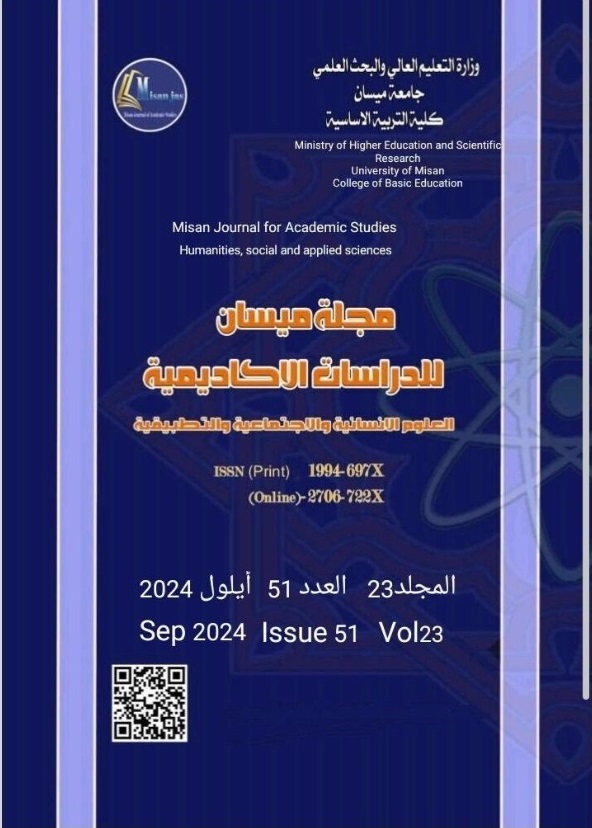Adhesion of 3d printed acrylic resin with silicone soft liner after sandblast surface treatment (A Review of Literature)
Abstract
This literature review emphasizes the impact of aluminum oxide sandblast particles as a surface treatment agent on bond strength of heat-cured and 3D-printed polymethyl methacrylate denture bases and silicone soft liner. Denture soft liner materials play a crucial role in prosthodontics by enhancing comfort and tissue adaptability for denture users, as well as restoring irritated and deformed mucosa. The primary disadvantage of denture soft liner is the separation of the lining material from the denture base, known as debonding. Hence, it is important to improve the cohesion of these parts.
Downloads
Copyright (c) 2024 (Humanities, social and applied sciences) Misan Journal of Academic Studies

This work is licensed under a Creative Commons Attribution-NonCommercial-NoDerivatives 4.0 International License.
The copyright is also the copyright of the magazine only.
All articles published in our magazine are subject to license terms
Creative Commons Attribution(CC BY-NC-ND 4.0) This license permits the content to be reproduced, redistributed and reused in whole or in part for any purpose free of charge, without any permission from the author(s), researcher or student.
Works submitted to Maysan Journal of Academic Studies for publication in the journal (CC BY-NC-ND 4.0) license terms. Where available content can be shared, distributed and replicated provided there is no commercial profit and appropriate credit must be given to the original source through sources or citations. It is mandatory to review any material used from other sources including shapes, tables, and images for re-use under the terms of the Creative Commons License (CC BY-NC-ND 4.0).Provided that there is no modification to the original content



